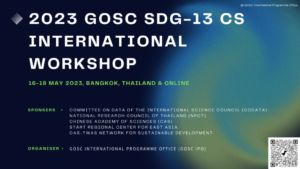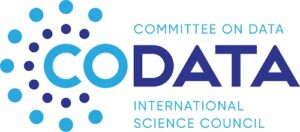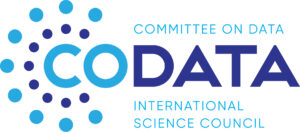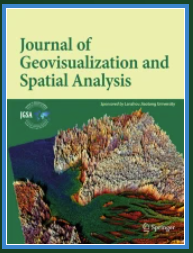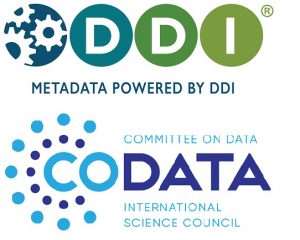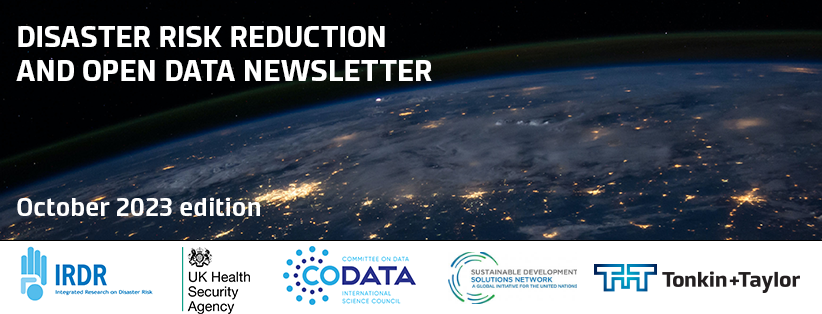
Running Dry Racing Against Time to Secure Our Water Future
Reviewing our progress in 2023, we need to catch up to our 2030 targets, particularly in water resources management. Despite challenges, the 2023 UN Water Conference and World Water Week have made strides towards a water-secure world. However, achieving these targets will require $114 billion per year in capital expenditure. It’s time for bold commitments, innovative solutions, and global collaboration!
At Climate Ambition Summit, UN Agencies and IFRC kickstart Major Initiative Towards Realizing Early Warnings for All by 2027
An initial injection of US$1.3 million from the Green Climate Fund (GCF) will be used to kick-start a much larger initiative aimed at delivering $157 million from the GCF and partner governments to move towards universal early warning for all.
How Nature-Based Solutions Can Build Urban Resilience: Four Lessons from SEI’s Work in South Asian Cities
Nature-based solutions can help address environmental challenges in cities but community involvement and engagement is crucial to utilize local knowledge and create sustainable solutions. Here we provide four lessons based on SEI’s collaboration at the ground level to show how NbS can be made to work to address environmental challenges in cities.
Drones and Planes: Unprecedented Imagery Resolution Supports Disaster Assessment
The first use cases of drones and airplanes to collect high-resolution imagery helped the EU respond to emergencies and track disaster recovery with unparalleled accuracy. The potential to support disaster management looks promising.
Effective Visual Communication of Climate Change
Boulder, Colo., USA: The consequences of a warming climate frequently dominated the news this summer, from devastating wildfires and floods to deadly heat waves across the globe. Reducing harm from climate change is a challenging endeavour, and it requires comprehensive public education. Thus, the question arises: How can climate change science be made most accessible to the general population, as well as decision-makers and educators?
The Threat of Wildfires is Rising. So are New Artificial Intelligence Solutions to Fight Them
Wildfires fueled by climate change have ravaged communities from Maui to the Mediterranean this summer, killing many people, exhausting firefighters and fueling demand for new solutions. Enter artificial intelligence. Firefighters and startups are using AI-enabled cameras to scan the horizon for signs of smoke. A German company is building a constellation of satellites to detect fires from space.
“From satellites to sandbags”: Putting Water at the Heart of Climate Action.
As proved so tragically in Libya last week, while water holds the key to life, all too often it kills.
Whether – like in Derna – it’s too much water leading to floods, or too little water causing droughts, or polluted water resulting in health risks, addressing the dangers that water poses can save lives. As climate change intensifies these threats, there is an urgent need for action.
The Environmental Dimensions of Libya’s Flood Disaster
The catastrophic flooding in eastern Libya is a human and environmental disaster that has claimed thousands of lives. In this report we examine the main environmental considerations in the short and long-term, both to help inform the humanitarian response and later recovery. We also reflect on how years of conflict and insecurity in Libya contributed to the disaster.
Read the full newsletter here
- SEO Powered Content & PR Distribution. Get Amplified Today.
- PlatoData.Network Vertical Generative Ai. Empower Yourself. Access Here.
- PlatoAiStream. Web3 Intelligence. Knowledge Amplified. Access Here.
- PlatoESG. Carbon, CleanTech, Energy, Environment, Solar, Waste Management. Access Here.
- PlatoHealth. Biotech and Clinical Trials Intelligence. Access Here.
- Source: https://codata.org/disaster-risk-reduction-and-open-data-newsletter-october-2023-edition/
- :has
- :is
- $UP
- 2023
- 2030
- a
- accessible
- accuracy
- achieving
- across
- Action
- address
- addressing
- against
- agencies
- aimed
- Airplanes
- All
- also
- ambition
- an
- and
- ARE
- artificial
- artificial intelligence
- AS
- asian
- At
- based
- BE
- Billion
- bold
- both
- build
- Building
- but
- by
- cameras
- CAN
- capital
- capital expenditure
- cases
- catastrophic
- Catch
- causing
- challenges
- challenging
- change
- Cities
- claimed
- Climate
- climate action
- Climate change
- CODATA
- collaboration
- collect
- commitments
- committee
- Communication
- Communities
- community
- company
- comprehensive
- Conference
- conflict
- Consequences
- considerations
- contributed
- create
- crucial
- dangers
- data
- decision-makers
- delivering
- Demand
- Despite
- devastating
- dimensions
- disaster
- Drones
- dry
- Early
- eastern
- edition
- Education
- educators
- engagement
- Enter
- environmental
- EU
- examine
- fight
- firefighters
- fires
- First
- flood
- For
- four
- frequently
- from
- fueled
- full
- fund
- General
- German
- Global
- globe
- Governments
- Green
- Ground
- harm
- Have
- Health
- Heart
- help
- helped
- here
- high-resolution
- holds
- horizon
- How
- However
- HTTPS
- human
- Humanitarian
- in
- inform
- initial
- Initiative
- innovative
- insecurity
- Intelligence
- Intensifies
- involvement
- IT
- Key
- Kills
- knowledge
- larger
- Last
- later
- leading
- Lessons
- Level
- Libya
- Life
- like
- little
- Lives
- local
- long-term
- LOOKS
- made
- Main
- major
- management
- many
- many people
- Mediterranean
- million
- most
- move
- much
- Need
- New
- new solutions
- news
- Newsletter
- october
- of
- often
- on
- open
- open data
- or
- our
- particularly
- partner
- People
- per
- Planes
- plato
- Plato Data Intelligence
- PlatoData
- population
- poses
- potential
- Progress
- promising
- proved
- provide
- public
- Putting
- question
- racing
- realizing
- recovery
- reducing
- reduction
- reflect
- report
- require
- requires
- resilience
- Resolution
- Resources
- Respond
- response
- resulting
- rising
- Risk
- risks
- satellites
- Save
- scan
- Science
- Science and Technology
- secure
- Short
- show
- Signs
- Smoke
- So
- Solutions
- South
- Space
- Startups
- strides
- summer
- Summit
- support
- Supports
- sustainable
- targets
- Technology
- that
- The
- There.
- These
- this
- thousands
- threat
- threats
- Thus
- time
- to
- too
- towards
- track
- UN
- Universal
- unparalleled
- unprecedented
- urban
- urgent
- USA
- use
- used
- using
- utilize
- warning
- Water
- waves
- we
- week
- WELL
- while
- will
- with
- Work
- world
- year
- years
- zephyrnet



